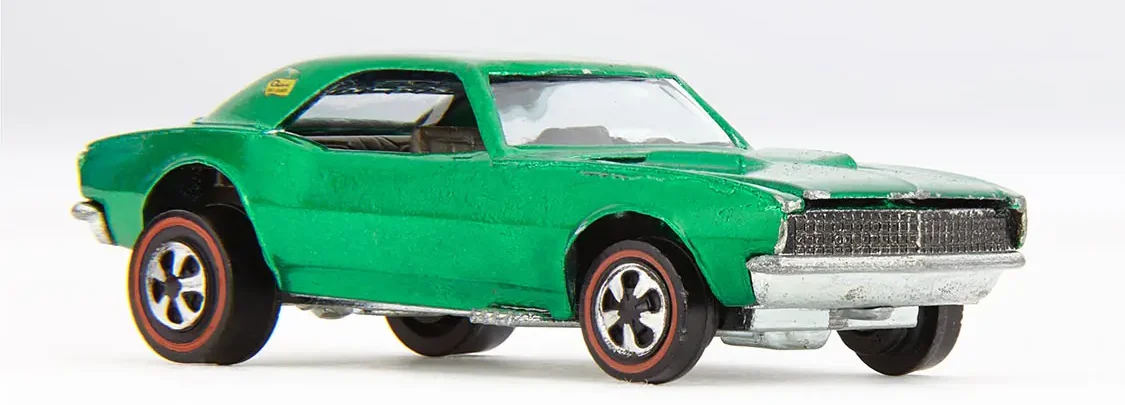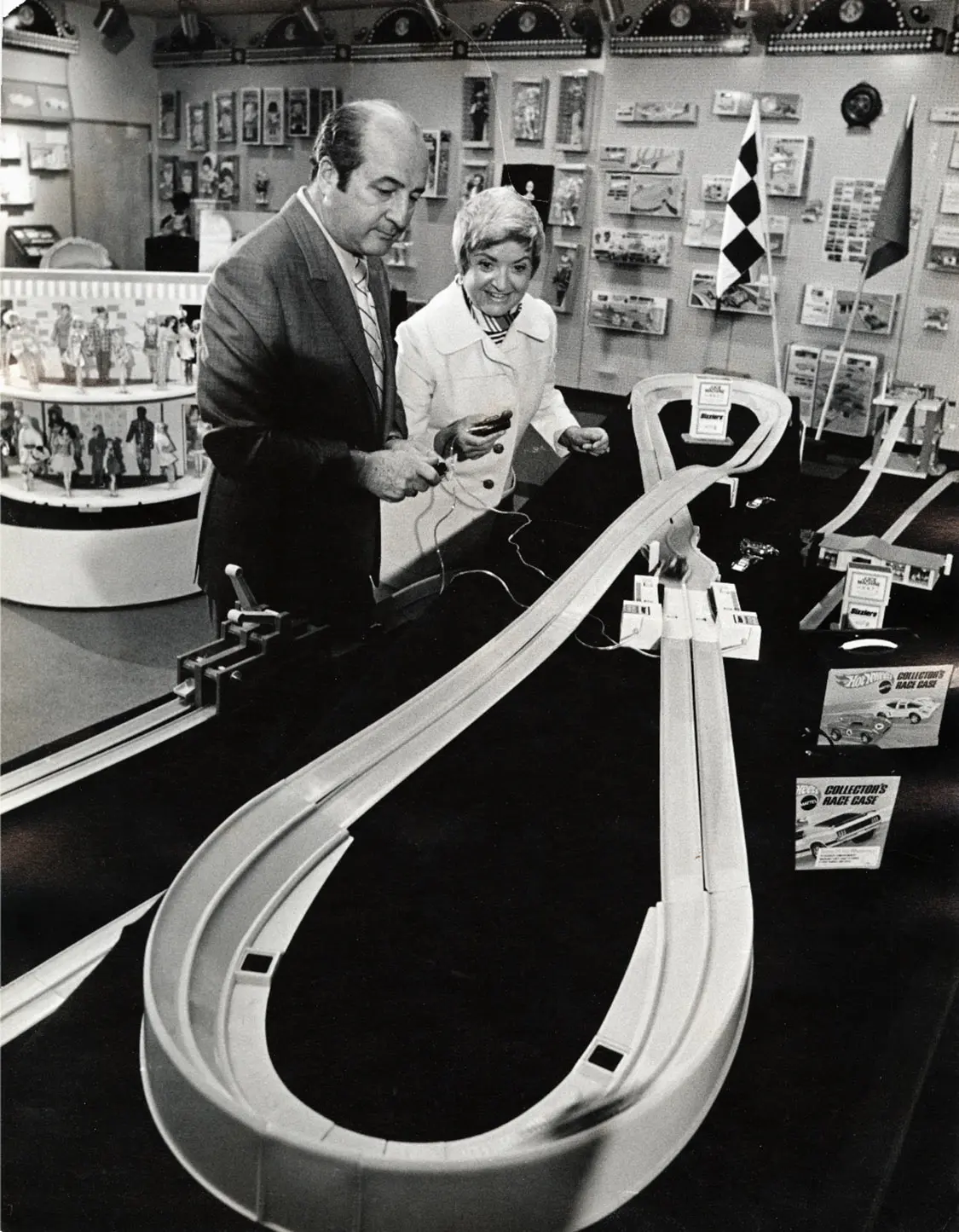 HOT WHEELS MEDIA
.
February 28, 2023
.
All Feature Vehicles
HOT WHEELS MEDIA
.
February 28, 2023
.
All Feature Vehicles

For nearly six decades, Hot Wheels has provided adrenaline-fueled vehicle play that ignites the challenger spirit in every kid with the most outrageous and innovative cars and track systems. Hot Wheels was born when Mattel co-founder Elliot Handler (shown right, with wife and Mattel co-founder Ruth Handler) challenged his design team, which included a General Motors car designer and a rocket scientist to create a toy car that was cooler and performed better than anything on the market. They answered with the first-ever trackable toy car.
Handler was so impressed by the car’s groundbreaking new wheel design and performance that his first response when he saw it rolling along the floor was: “Those are some hot wheels!”
Soon, deals were in place to re-create muscle cars from the Big Three car makers, along with a patented independent suspension to complement the speedy wheel design.
The Hot Wheels® Custom Camaro® (shown below) hit shelves in May of 1968. It was quickly followed by 15 more 1:64 scale speed machines. This first edition of cars became known as the “Sweet 16”—now among the most valuable and collectible toy vehicles ever made.

Challenge has always been core to Hot Wheels play. How fast can I go? Will I nail the jump? Will the car make it through the loop? These are just a few of the thoughts that race through children’s heads when they play with Hot Wheels.
Hot Wheels believes that the challenges the brand provides through competition, creativity and experimentation help kids build the skills and confidence they need to take on the world.
Much more than a toy, the brand has mushroomed into a booming franchise and multi-channel play experience. It has become a true lifestyle brand with segments in gaming, digital platforms, auto partnerships, licensed apparel and merchandise.
Now approaching its 60th year, the Hot Wheels die-cast car is the number one selling toy in the world* with 16.5 Hot Wheels sold every second.
*Hot Wheels Basic Cars Assortment is the #1 selling toy in the world, based on units sold, according to NPD.
The “Sweet 16,” the first set of die-cast cars, included custom designs based on real life hot rods and reflected California’s custom car culture. Speed, power and performance were the common attributes shared by every car that bore the Hot Wheels name. Mattel co-founder Elliot Handler first entered into the die-cast car business while playing with his children in 1966. He realized that the die-cast cars available at that time were rather lackluster – not very agile and lacking a wide range of models and variations.
The Hot Wheels design team knew that the key to the brand’s success was in the speed of the cars. Kids wanted their cars to be fast and the design team delivered. The suspension in the original Hot Wheels cars utilized a thick gauge music wire as the axle, which when lubricated and coupled with a unique plastic bearing, allowed the wheels to roll and spin freely with minimal friction.
The design team also zeroed in on making the cars eye-catching, accomplished through the unique “Spectraflame” paint jobs the cars sported. By polishing the car bodies down to an almost mirror shine and spray-painting them with a transparent colored paint, the result was a candy-colored, metallic finish the likes of which had never been seen before.
With sleek silhouettes, huge supercharged engines and wide back wheels, these customized cars raised the bar for toy and automotive designers alike by creating cars that challenged traditional car design limitations.
The first line of Hot Wheels die-cast cars introduced were called “The Sweet 16,” and made their debut at the International Toy Fair in 1968. “The Sweet 16” were 16 cars whose designs were inspired by California muscle cars and hot rods. The first Hot Wheels toy car offered was the Custom Camaro®, sold on May 18, 1968 – Hot Wheels’ official “birthday.“
Following the Custom Camaro®, the 15 other cars in the line were the Beatnik Bandit, Custom Barracuda, Custom Corvette®, Custom Cougar, Custom Eldorado™, Custom Firebird®, Custom Fleetside, Custom Mustang (shown above), Custom T-Bird, Custom Volkswagen, Deora® (now called Dodge Deora Concept), Ford J-Car, Hot Heap™, Python (now called Cheetah ™) and the Silhouette®.
Hot Wheels went on to influence car culture and real-world car design by creating toy cars that looked radically different from anything else on the road in 1968. To this day “The Sweet 16” remain among the most valuable and collectible toy vehicles ever made.
We use cookies to enhance your browsing experience, serve personalized ads or content, and analyze our traffic. By clicking "Accept All", you consent to our use of cookies. Visit our Cookie Policy for more info.
Notifications
Share Link